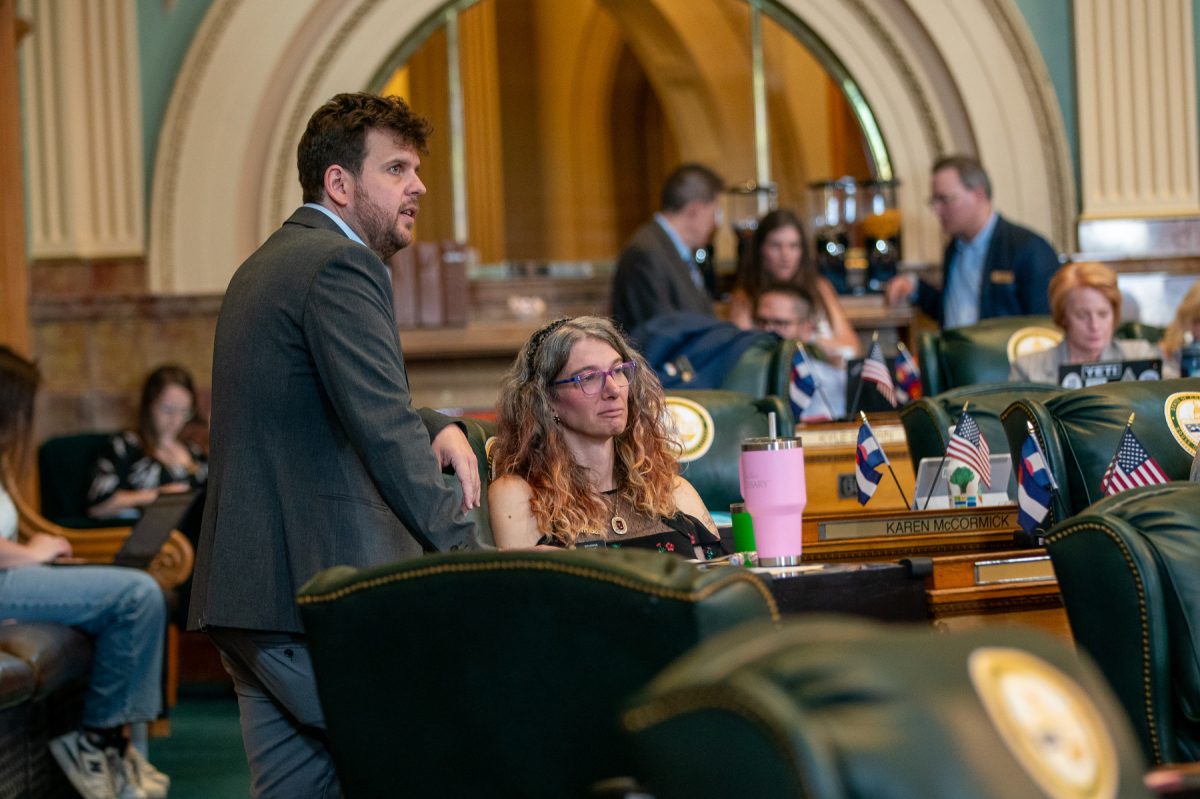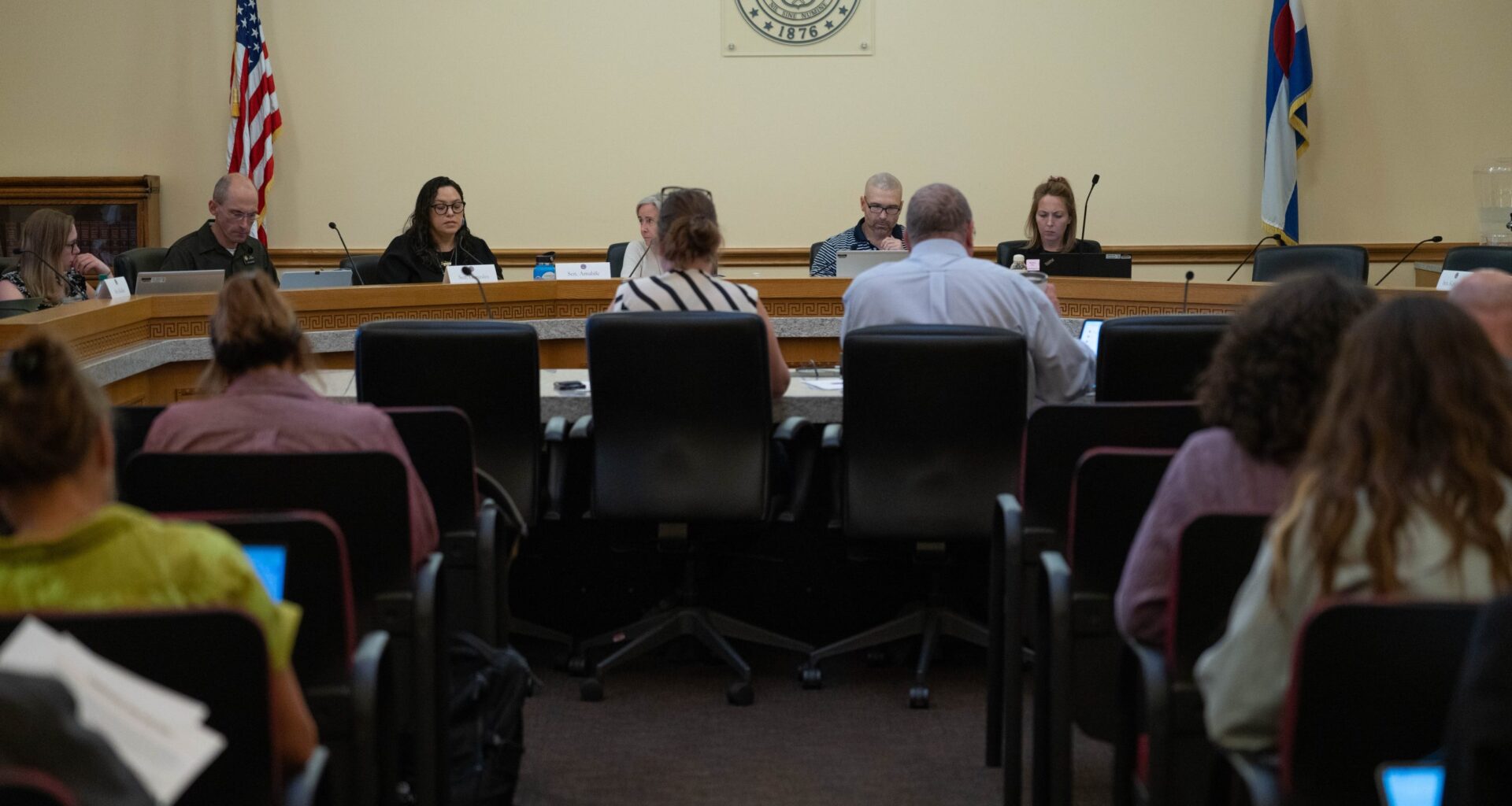The Democratic majority in the Colorado legislature ended a six-day special lawmaking term Tuesday by punting changes to the state’s first-in-the-nation law regulating artificial intelligence into next year.
Senate Bill 4, which would delay the start date of the AI law to June 30 from February, received final approval Tuesday. It now awaits Gov. Jared Polis’ signature.
The delay will give lawmakers a final chance to tweak the law, first passed in 2024, when they return to the Capitol in January for their regular, 120-day legislative session.
Polis asked lawmakers to take up the AI law when the legislature gathered starting Thursday for a special session primarily aimed at plugging a $750 million hole in the state budget caused by tax policy changes in the One Big Beautiful Bill Act. That’s the Republican federal tax and spending bill passed in July and signed into law by President Donald Trump.
When the AI law passed, it created an uproar among tech companies over concerns it was too stringent and would stifle technological advances. At the time, lawmakers, the governor and the tech industry agreed to work together to make changes ahead of it going into effect.
But an attempt earlier this year during the legislature’s regular session failed — as did a last-ditch effort to postpone when the law takes effect.
It appeared Sunday night like the legislature was going to reach a deal with consumer advocates and the tech industry on how to move forward. But by Monday morning the agreement had become unplugged.
On Monday afternoon, Senate Majority Leader Robert Rodriguez, a Denver Democrat and architect of the AI law and Senate Bill 4, announced he was giving up and kicking negotiations into 2026.
“It became impossible to iron out a path forward that works for everyone,” Rodriguez told the Senate.
It’s unclear if the legislature will be able to iron out a path forward next year. Negotiations on the AI law are approaching two years with no resolution.
The law, unless it is changed next year by the legislature, will require companies to assess and disclose, to regulators and consumers, when AI is being used for consequential decisions, like employment, loans and housing. It will also require companies to provide an explanation of how their technology works to consumers who don’t like how AI made a determination.
The Colorado Attorney General’s Office would enforce the law, which carries a fine of up to $20,000 per violation, and field complaints.
A group of Democrats in the House and Senate voted “no” on Senate Bill 4 in opposition to the delay.
Rep. Brianna Titone, D-Arvada, had originally cosponsored the bill with Rodriguez. But after the negotiations fell apart and the measure was amended to just delay the start day of the law, she pulled her name from the legislation and urged colleagues to vote against it.
“Big tech companies do not want to come to the table — they do not want compromise, they do not want any liability,” she said. “It was a nonstarter. They don’t want to be responsible.”
 Democratic Reps. Javier Mabrey and Brianna Titone on the House floor, Aug. 22, during a special legislative session. (Hart Van Denburg, Colorado Public Radio via the Colorado Capitol News Alliance)
Democratic Reps. Javier Mabrey and Brianna Titone on the House floor, Aug. 22, during a special legislative session. (Hart Van Denburg, Colorado Public Radio via the Colorado Capitol News Alliance)
Other Democrats complained that the legislature was letting itself be bullied by the tech lobby.
“When private entities wield this much power over people’s lives — determining who gets hired, who gets healthcare, who qualifies for loans — are we really free?” said Rep. Sheila Lieder, a Littleton Democrat.
But it wasn’t enough to stop the measure from passing.
The bill cleared the House by a vote of 48-14, with all but two of the “no” votes coming from Democrats. It passed the Senate by a 29-3 vote. All of the Senate “no” votes came from Democrats.
The legislature then adjourned Tuesday afternoon until January.
Type of Story: News
Based on facts, either observed and verified directly by the reporter, or reported and verified from knowledgeable sources.

